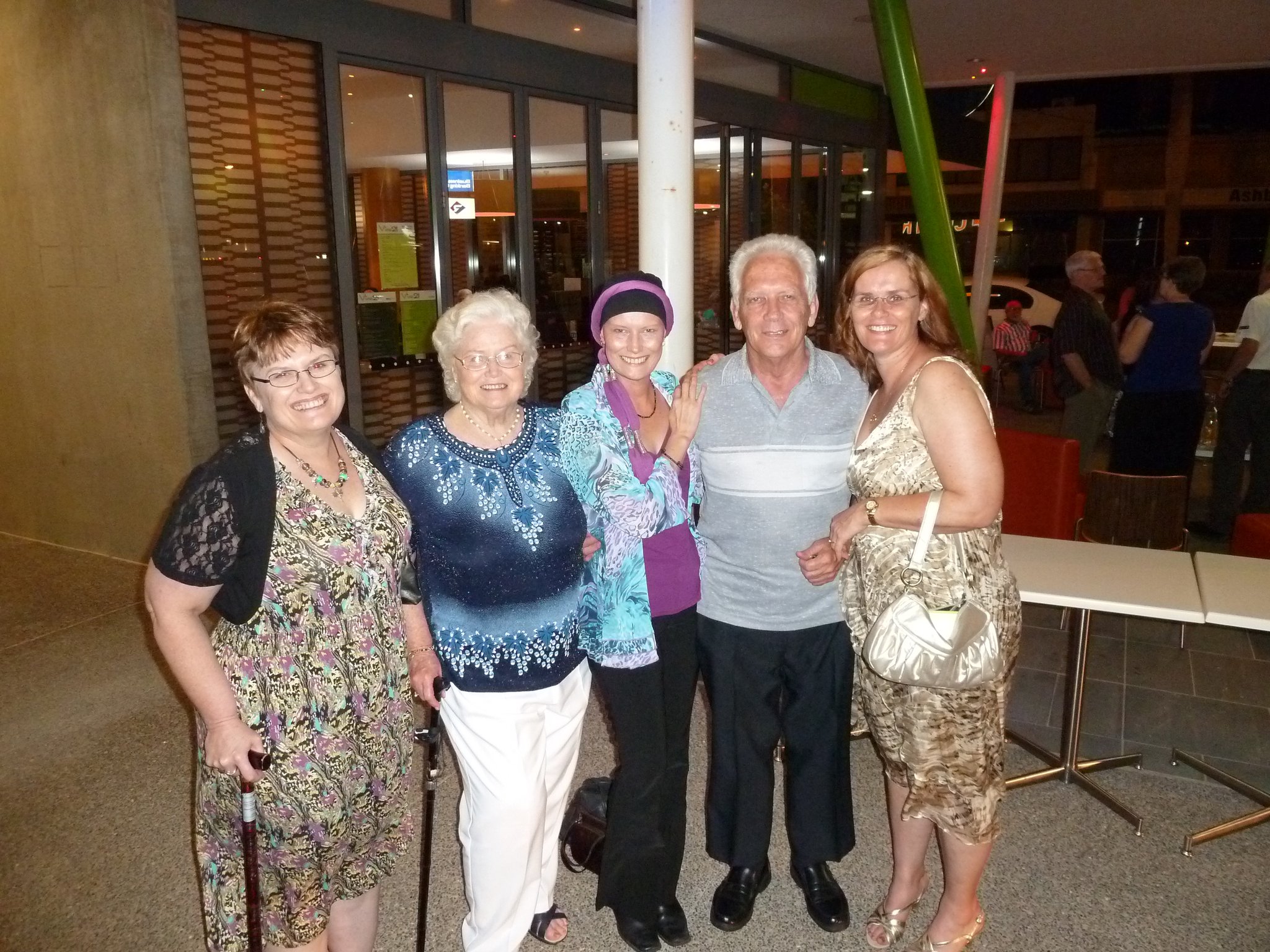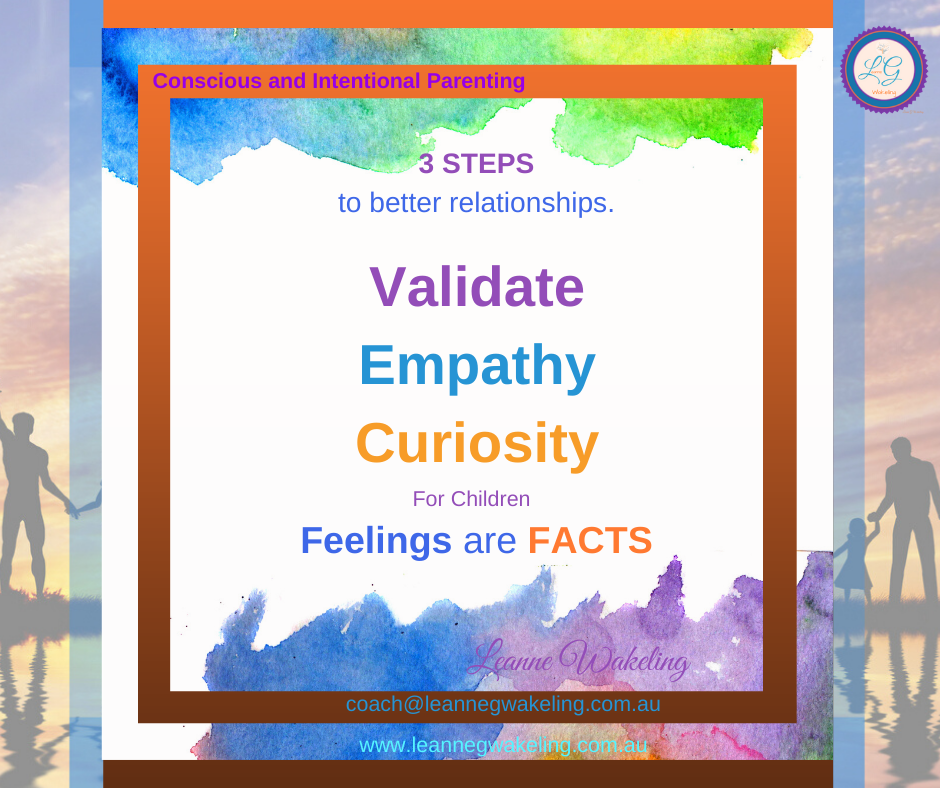So many parents get so focused on the DOING of parenting, that we can loose focus on the BEING.
What I mean by that is, parenting IS a lot of responsibility and there is NO right way of doing the journey. Though there are a few things that if avoided will help heaps in raising an emotionally intelligent and well-rounded adult.
It’s important to remember that parenting is a l o o o o n n g game. When we stay focused in on the everyday whirlwind, we can literally drive ourselves nuts. Especially those of us who might perhaps maybe be inclined to wanting to control all the moving parts. The problem is, that no one ever can make sure every situation is controlled.
What is great to consider, what is the purpose,
WHY are we raising these children?
For the vast majority of us, it isn’t so that they become YES people to those around them.
Therefore, in order for them to gain the skills to think for themselves, we must provide them opportunities to gain experience in making decisions.
Making decisions was something that my dad encouraged in us. Drove our mum nuts at times, and created some tension along the way. Though it’s empowered each of us to be very strong in our approaches to life.
Myself (on the left) and my sister one down (on the right) are both veterans and long term military partners.
Our other sister (who was recovering from breast cancer at the time). Her husband had his own butcher business, working very long hours. She was the sisters mediator, and her advocacy skills came into their own when she had a child with a cleft palate and ongoing medical needs.
Being able to stand up for ourselves was essential in the many periods of parenting alone, as well as to be advocates for our children and those around us.
7 Behaviours to empower Success.
1. Understand yourself.
Yes, be aware of who you want to BE. If you are not that person yet, accept that you are on a learning journey with your child. It’s totally ok to be learning together.
Those of us who run a perfectionist strategy can be pretty overwhelming to children, and often are not enjoying the journey because we are trying to control what is happening.
We can get caught in a whole lot of self-doubt, which I discovered much later in life is pretty self-indulgent, because our children don’t need, nor want a perfect parent, they just want a good enough one that is ok within themselves, and cares for them.
2. Healthy Boundaries
What are healthy boundaries? For lots of us, we are not very clear. Some of us do really well and are resilient with our outgoing boundaries. While at the same time, and generally with no conscious awareness step over other people’s boundaries.
Examples of stepping over other people’s boundaries include, providing unsolicited advice. Even if we are right, doesn’t make it appropriate. Chances are you had a parent and/or grandparent who did it a lot.
As a parent it includes ignoring or dismissing our child’s needs or wants. Things like telling them everything is ok, even when they are upset, without validating their feelings or being curious about their concerns.
It’s creating an environment of mutual respect. When a child, even a small child feels like they are being heard and understood, even when we can’t or don’t want to meet their wishes, builds trust that encourages our child to do what we ask.
3. Have a Growth Mindset
What that means is, accepting that sometimes things don’t go well. That doesn’t mean there is anything wrong with either ourselves or our child.
4. Seek best intentions first
Avoid assuming the worst. It’s a very natural human thing to seek out what is wrong, what might be a threat to us, however, our child’s behaviour is not likely to be the threat that our subconscious might be perceiving.
To minimise the chance of going into survival mode ourselves, which is where we react rather than respond. Is to look past the behaviour to what might be going on for them.
We humans are particularly self-absorbed, even as adults, we still have a tendency to look at our experience on what’s in it for me. However, when we are parenting, it is essential to pivot the focus to our child. Not always easy, especially for those of us who may have pretty high defensive walls due to how we were raised.
When we can accept our children as they are, avoid taking their behaviour personally and put ourselves in their shoes first, what we do is demonstrate the empathy that we want them to be learning.
5. Be a model of excellence
From birth our children are learning more from who we are being, than what we are saying.
Accept that modelling excellence is about creating an environment that fosters ongoing success.
Appreciate that our children are on a learning journey, and that mastery is a long-term outcome, not a short-term result.


6. Cultivate TRUST
For our child to succeed in meeting expectations, they need to feel safe and heard. Trust is earnt not demanded and is definitely not an automatic entitlement.
To build trust with our child, we have to be trustworthy. In a child’s realm, that means consistency, reliability, saying what we mean and meaning what we say.
Unfortunately, for those of us who may be more at the other end of the spectrum in our parenting philosophy or experience, there is a thing such as too gentle. What I mean by that is that if we are too flexible in our approach, such as thinking, it’s ok if they don’t do it this time. What we do is set ourselves up for failure and disappointment with little kids, because they have no capacity to understand why you might have been “generous” this time. Their tenacity will play the odds.
7. Choose to be a life-long learner
What that means is, to be open to learning new things? Appreciate that sometimes even the best intentions might not align with your child.
Accept that the world is constantly changing, as is our child in those first 10 -20 years. The changes are frequent in the first seven years aka the imprint period. During this phase, their brain has no filters, to facilitate the speed of learning and development that they go through. The down-side is, they have no filters and everything goes in as they literally interpret it.

I’d love to know what stood out most to you.
It one of the biggest learning opportunities in 21st century parents is that the reason that parenting has changed, is because the level of knowledge that is available has changed. It’s not that our parents did anything bad, it’s that the knowledge is new.
For those parents who get stuck in old world. There is so much opportunity to improve our own level of experience through taking the journey with our child into new world territory.
I do appreciate that being open to fresh perspectives and new ideas can be daunting to some people. Even my very lovely husband takes a little time to step into new concepts, especially if the evidence doesn’t appear to be demonstrating a reason to change.
The problem with staying in the “but this was how I was taught”, leaves us to becoming stale, and what’s more, even made obsolete.
To ensure to keep pace with new world, BE ever green and growing.
The alternative is ripe and rotting.
I don’t know that anyone is invested in rotting.
Author – Leanne G Wakeling – Relationship and Communication Coach, Parenting Mentor,
Behaviour and Thinking Styles Profiler.
If you are in the trenches of parenting,
come join me in
the Conscious and Intentional Parenting Tribe on Facebook,
where you can access tools, strategies and support, to assist you in raising children to become emotionally intelligent to meet the needs of Adulting in the 21st century.



Trackbacks/Pingbacks